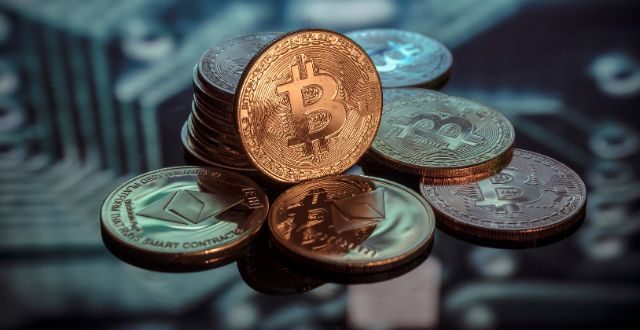Cryptocurrency mining has seen rapid growth and evolution over the past decade since the launch of Bitcoin in 2009.
However, it also faces some key challenges around energy consumption, hardware demands, and payment processing. Innovative solutions could help address these pain points for both miners and crypto users.
The Rising Popularity of Crypto Mining
Cryptocurrency mining refers to the process of verifying and adding new transactions to the blockchain digital ledger. Miners use specialized computers to solve complex math puzzles and validate transaction blocks. In return, they earn crypto token rewards for their contribution supporting the network.
As major cryptocurrencies like Bitcoin and Ethereum gained meteoric popularity, interest in crypto mining surged. The potential to earn generous block rewards convinced many people worldwide to participate. Crypto miners run the algorithms needed to power blockchain networks by securing transaction data.
However, mining now requires tremendously more resources compared to Bitcoin’s early years. Let’s explore the key challenges miners face today.
The Energy Consumption Concern
Cryptocurrency mining has become an energy-intensive endeavor due to the complexity of problems required to earn tokens. Bitcoin alone consumes around 101 terawatt-hours annually, rivaling mid-sized nations like Malaysia. Environmentalist critics argue that crypto’s massive energy footprint exacerbates climate change.
Developers are pursuing more energy-efficient consensus models like proof-of-stake to address these worries. Ethereum is transitioning from proof-of-work to proof-of-stake, which will reduce its power needs by ~99.9%. Critics also often overlook crypto mining’s potential to support renewable energy growth by creating economic incentives. Regardless, environmental impact remains a contentious issue.
Surging Hardware Requirements
When Bitcoin first emerged, miners could participate profitably with everyday consumer hardware. But the mining difficulty has surged exponentially. Today’s miners need specialty gear like high-powered ASICs and mining rigs with dozens of the latest GPUs.
Mining bitcoin with an ordinary CPU or GPU is no longer viable because the hardware cannot keep pace with the system’s complexity growth. Cryptocurrencies using proof-of-work consensus place ever-increasing demands on mining equipment. Miners must continually upgrade their rigs to stay profitable.
This causes a barrier to entry due to the sheer capital required. For individual miners, equipment costs can easily run into the thousands or even millions of dollars. More casual crypto enthusiasts are priced out of participating independently in the mining process.
Payment Processing Obstacles
Since cryptocurrency miners earn token-based rewards, they need an easy way to cash out their earnings. Unfortunately, traditional payment systems like banks and credit cards frequently refuse to interface with crypto.
Miners struggle to convert hard-won coins into usable fiat currency. They are often left relying on peer-to-peer trades or overseas exchanges which bring added risks, delays, and fees. Payment processing bottlenecks dampen profitability.
Without adequate fiat off-ramps, miners cannot truly reap the rewards for securing blockchain networks. Fixing this cashflow bottleneck could incent more miners to participate, boosting security.
DefiWay: Streamlining Crypto Payments
It offers an innovative solution to the challenges of processing miner payments. It focuses on seamless integration between traditional finance and decentralized cryptocurrency networks.
The platform specializes in faster, cheaper cross-border merchant transactions. Any business accepting crypto can use it to effortlessly cash out earnings. This approach uniquely caters to the needs of miners who earn income in crypto tokens.
DefiWay bridges the gap between fiat money systems and digital currencies. Its on-ramp and off-ramp services give businesses flexible liquidation options unmatched by traditional financial services with high fees or outright blockchain rejection policies.
Miners can instantly convert coins for local payouts using faster payments, bank transfers, or cash pickup. Receivers get funds quickly in desired currencies without the volatility risks of crypto itself.
It smoothly links crypto miners and blockchain economies to existing payment infrastructure. Offering reliable fiat conversion and payouts at scale could resolve a massive pain point. Fast access to earned income allows miners to better cover operating expenses like energy and hardware.
Bringing Crypto Mining into the Future
Cryptocurrency mining must keep evolving to overcome limitations around environmental impact, access, and financial logistics. Solutions that bridge the gap between blockchain and the broader economy could hold promise.
Making reliable fiat payment conversion accessible empowers more participants to support crypto network security while offsetting costs. As digital currencies continue seeing mainstream adoption, refining supporting infrastructure will be key.
Innovations addressing mining’s challenges can reinforce sustainability and decentralization principles underpinning cryptocurrencies. The sector’s continued growth rests on making access and real-world integration far smoother for all users especially those providing foundational consensus mechanisms.
Streamlined solutions have the potential to radically transform relationships between new blockchain economies and established systems.
 khamush.com Lifestyle | Motivation | Poems
khamush.com Lifestyle | Motivation | Poems



